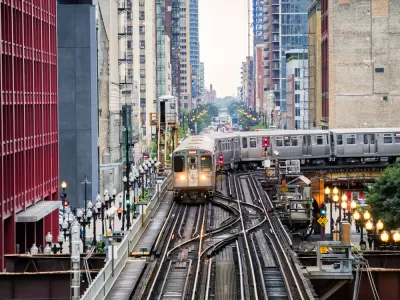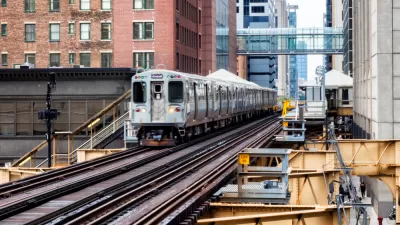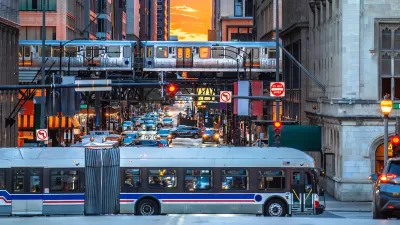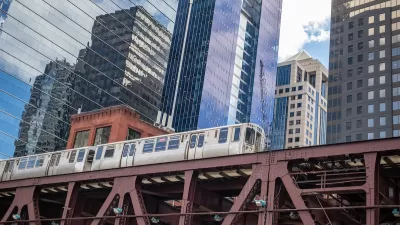Illinois transit agencies want to see changes to a law requiring them to collect half of their revenue from transit fares, arguing that low ridership and staffing shortages will lead to a massive budget gap without intervention.

The Regional Transportation Authority (RTA) in Illinois is calling on state lawmakers to change a law that requires half of the agency’s revenue to come from transit fares, citing continued low ridership after the pandemic, when emergency exemptions kept the agency afloat. Writing in Crain’s Chicago Business, Andrew Adams explains that “Last month, RTA's board approved a strategic plan that includes seeking increased funding overall to the system and developing a new model that is less reliant on fares.”
Members of the state Senate Transportation Committee said they would likely support assisting the RTS and Chicago Transit Authority (CTA), which it oversees, but expressed interest in addressing “certain reforms and issues, like safety and accessibility, that need to be addressed.”
“Beyond the long-term inequities in access, the CTA has also faced criticism from lawmakers and advocates about increased wait times for services and ‘ghost busses,’ a term to describe when a bus is scheduled to come but never does,” problems the CTA attributes to a worker shortage.
The challenges aren’t unique to the Chicago area. “Transit systems in Bloomington-Normal, Peoria, Rockford, Springfield, Champaign-Urbana, Decatur, Kankakee and DeKalb have all faced decreased ridership since the pandemic began.” According to Adams, “As of December, the combined number of trips being taken on these systems is down to 69 percent of what it was at the same time in 2019, according to data from the Federal Transit Administration.”
FULL STORY: Chicago transit looks to the state to help make up $730 million budget gap

Maui's Vacation Rental Debate Turns Ugly
Verbal attacks, misinformation campaigns and fistfights plague a high-stakes debate to convert thousands of vacation rentals into long-term housing.

Planetizen Federal Action Tracker
A weekly monitor of how Trump’s orders and actions are impacting planners and planning in America.

In Urban Planning, AI Prompting Could be the New Design Thinking
Creativity has long been key to great urban design. What if we see AI as our new creative partner?

How Trump's HUD Budget Proposal Would Harm Homelessness Response
Experts say the change to the HUD budget would make it more difficult to identify people who are homeless and connect them with services, and to prevent homelessness.

The Vast Potential of the Right-of-Way
One writer argues that the space between two building faces is the most important element of the built environment.

Florida Seniors Face Rising Homelessness Risk
High housing costs are pushing more seniors, many of them on a fixed income, into homelessness.
Urban Design for Planners 1: Software Tools
This six-course series explores essential urban design concepts using open source software and equips planners with the tools they need to participate fully in the urban design process.
Planning for Universal Design
Learn the tools for implementing Universal Design in planning regulations.
Gallatin County Department of Planning & Community Development
Heyer Gruel & Associates PA
JM Goldson LLC
City of Camden Redevelopment Agency
City of Astoria
Transportation Research & Education Center (TREC) at Portland State University
Jefferson Parish Government
Camden Redevelopment Agency
City of Claremont





























